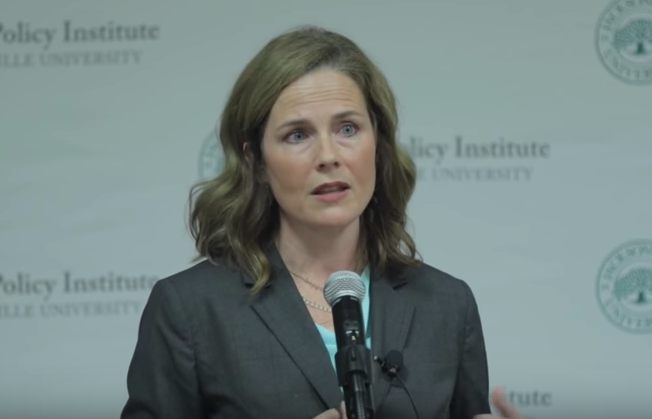
If You Want To Be A Trial Lawyer…
There is nothing quite like trying a case. How can you become better prepared?

There is nothing quite like trying a case. How can you become better prepared?

I finally realized that there was no One Way To Rule Them All when it came to closings.

Our expert panel explores common sources of profit leakage along with practical steps for improvement.

When you have any reasonable chance to grow as a lawyer, take it.

* Adam Feldman explores the possible effect on the Supreme Court of replacing Justice Ruth Bader Ginsburg with a staunch conservative -- e.g., Judge Amy Coney Barrett. [Empirical SCOTUS] * Speaking of SCOTUS, here's Ilya Somin's read of the tea leaves in Knick v. Township of Scott, an important Takings Clause case. [Volokh Conspiracy / Reason] * Stephen Embry disagrees with Joe Patrice's suggestion that junior lawyers are going extinct, but Embry acknowledges the major effect that technology is having, and will continue to have, on legal practice and employment. [TechLaw Crossroads] * Charles Glasser looks at what might have caused the political polarization of the modern media and its consumers. [Daily Caller] * The prospect of Michael Cohen testifying publicly before Congress is making some people giddy -- but it's not without its downsides, as Joel Cohen explains. [The Hill] * What can we learn from official Washington utterances about the shutdown? Here's some intel from VoxGov, via Jean O'Grady. [Dewey B Strategic] * Not all provisions of the Bill of Rights are created equal, according to Gerard Magliocca. [PrawfsBlawg] * David Berg draws lessons for trial lawyers from the genius of Joe Jamail's use of hypothetical questions. [YouTube]

* In 2018, what did Donald Trump talk about when he talked about the courts? Adam Feldman dives into the data to find out. [Empirical SCOTUS] * Speaking of President Trump and the judiciary, he continues to appoint federal judges at a record pace -- but the Democrats are doing everything they can to slow down his progress. [Bench Memos / National Review] * If you care at all about affordable housing, then you should be heartened by these developments in the fight against exclusionary zoning, as discussed by Ilya Somin. [Volokh Conspiracy / Reason] * Congratulations to the Department of Justice on its ninth consecutive year of civil health care fraud settlements and judgments exceeding $2 billion. [MedCity News] * If you're interested in the hot topics among law librarians, legal technologists, and others in the space, check out Jean O'Grady's most popular stories of 2018. [Dewey B Strategic] * And if you're interested in the year that was in artificial intelligence and the law, check out the Artificial Lawyer's roundup of notable news. [Artificial Lawyer] * Condolences to the friends, family, and colleagues of Bre Payton, who passed away last week at the age of 26. [The Federalist] * Veteran trial lawyer David Berg continues his series on "What It Takes To Win." [YouTube]

There are lots of kinds of lawyers; figure out which one you genuinely should be.

How long will voters be content to foot the bill for the president?

Trial lawyers and litigators are not the same; if you want to be a trial lawyer, be a trial lawyer.

When thinking about what your goals are in court you must think expansively. Don’t limit yourself.

News flash: Old person reminisces about a past that never was.

It’s the key to long-term success in an uncertain business climate.

Jeffrey Stone, co-chair of McDermott Will & Emery, participates in the ATL Interrogatories (sponsored by Lateral Link).

A look at one of America's most colorful trial lawyers and his lavish lifestyle -- as well as the recent hard times he has fallen upon.

How can lawyers at large law firms get more trial work (or, for non-litigators, more of the work that they find the most interesting)?

John Keker is quite the passionate arguer, err, trial attorney.

Tom Wallerstein's firm, like most firms in California, has a series of Rutter guides on its shelves. And even though he runs a virtually paperless office, he still loves his printed Rutter guides. Wallerstein even has a joke about Rutter. Whenever a colleague questions his ability to solve a particular issue, he jokes, “I’m sure there’s a Rutter Guide for that.” The joke has a serious point, namely, that the basics of most practice areas can always be learned. And if it’s easy enough to learn a practice area, why shouldn’t a lawyer forming a small firm become a true generalist; handling everything from family law, wills and trusts, civil, criminal, and essentially whatever walks in the door?